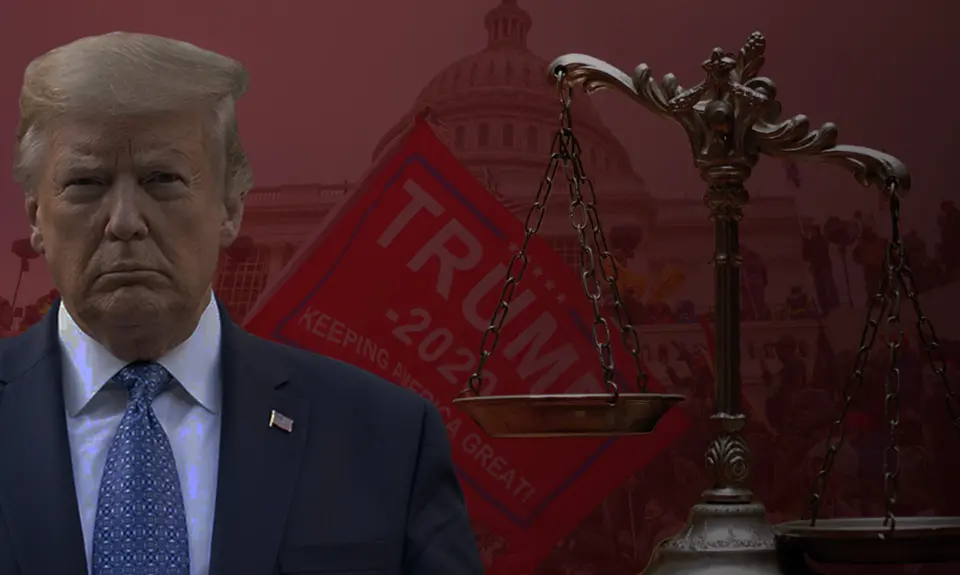Well, Donald Trump was indicted again, this time in Georgia. To clear up any confusion about this latest Trump indictment and how it relates to the previous charges, we once again turned to People For Senior Counsel Elliot Mincberg to break down the facts and answer our most pressing questions.
1. What is Trump charged with this time?
Trump and 18 co-defendants are charged with engaging in a broad-ranging criminal conspiracy to form a criminal enterprise to reverse the results of the 2020 election, both in Georgia and elsewhere, and to keep Trump in power. The 98-page indictment (available here) includes 41 counts and specifies 161 specific acts undertaken to carry out the conspiracy, some of which extend into 2022. The conspiracy charges were brought under a Georgia law modeled after a federal law aimed originally at organized crime, the Georgia RICO (Racketeer Influenced and Corrupt Organizations) Act.
2. How is this Trump indictment different than previous indictments?
Only this indictment and the federal indictment in DC charge Trump with misconduct in attempting to reverse the election. A key difference between the Georgia and DC indictments is that the Georgia charges are based solely on state law, including the Georgia RICO Act. That means that even if Trump is somehow elected, he cannot stop the Georgia prosecution or pardon himself, although he may try to influence state officials. It also means that, like most Georgia state cases, the trial is likely to be televised. The Georgia case also provides a broader perspective on Trump’s 2020 election-related misconduct, including allegations that he and his allies made false claims of voter fraud (directed primarily at Black election officials in Georgia), put together a slate of supposed Trump electors to cast electoral votes for him, harassed and intimidated local election workers, and tried to illegally access voting machines to advance false claims that the election was stolen.
3. Who else was charged alongside Trump?
There are a total of 18 co-defendants, who are listed in the indictment and described here. They include lawyers and others who worked with Trump at the federal level, several Georgia lawyers and officials, and several people who signed up as Trump electors to try to carry out the plot. Prominent co-defendants include Rudy Giuliani, Trump chief of staff Mark Meadows, and Trump Justice Department official Jeffrey Clark.
4. What is the potential sentence if he’s convicted?
If Trump were to get the maximum sentence for all the Georgia charges against him, it could add up to more than 60 years. The primary RICO criminal conspiracy charge carries a maximum sentence of 20 years with a minimum sentence of five years.
5. Will he go to trial? If so, when?
Unless Trump can get the case dismissed or transferred before trial, DA Willis has made clear she intends to bring Trump to trial. She has stated that she hopes to go to trial against all 19 defendants within six months, an ambitious goal.
6. Will this affect the federal charges?
Not directly. Although some of the facts and conduct alleged is similar to the DC case, the two cases are likely to proceed separately.
7. What defenses will Donald Trump raise and what is he saying in response to these charges?
Trump is already claiming that the case is politically motivated and designed to harm his 2024 campaign, which he may well raise as a pre-trial defense. He is also likely to try to get the case transferred outside of the Atlanta area or to federal court, perhaps trying to consolidate it with the DC case to slow both down. He and his lawyers are also likely to claim that he did not have the required bad intent and that he was just exercising his First Amendment rights – defenses that experts have severely criticized.
8. Why is this case so important?
This case is important for several reasons. No one is above the law, and Trump must be accountable for his misconduct. It is particularly important that he be held accountable by state courts, especially since states are primarily responsible for the conduct of elections. And because of the importance of the Black vote in carrying Georgia for Biden and the attacks by Trump and his allies on Black officials in Georgia, including DA Willis and others, the case also has important implications for racial justice.
Thanks, Elliot!
Stay up to date on the latest info around Trump, the courts, and everything else People For is doing to protect democracy by becoming a People For member today. It’ll take all of us to stand up to authoritarian attacks by defending Truth, Justice, and the American Way.
